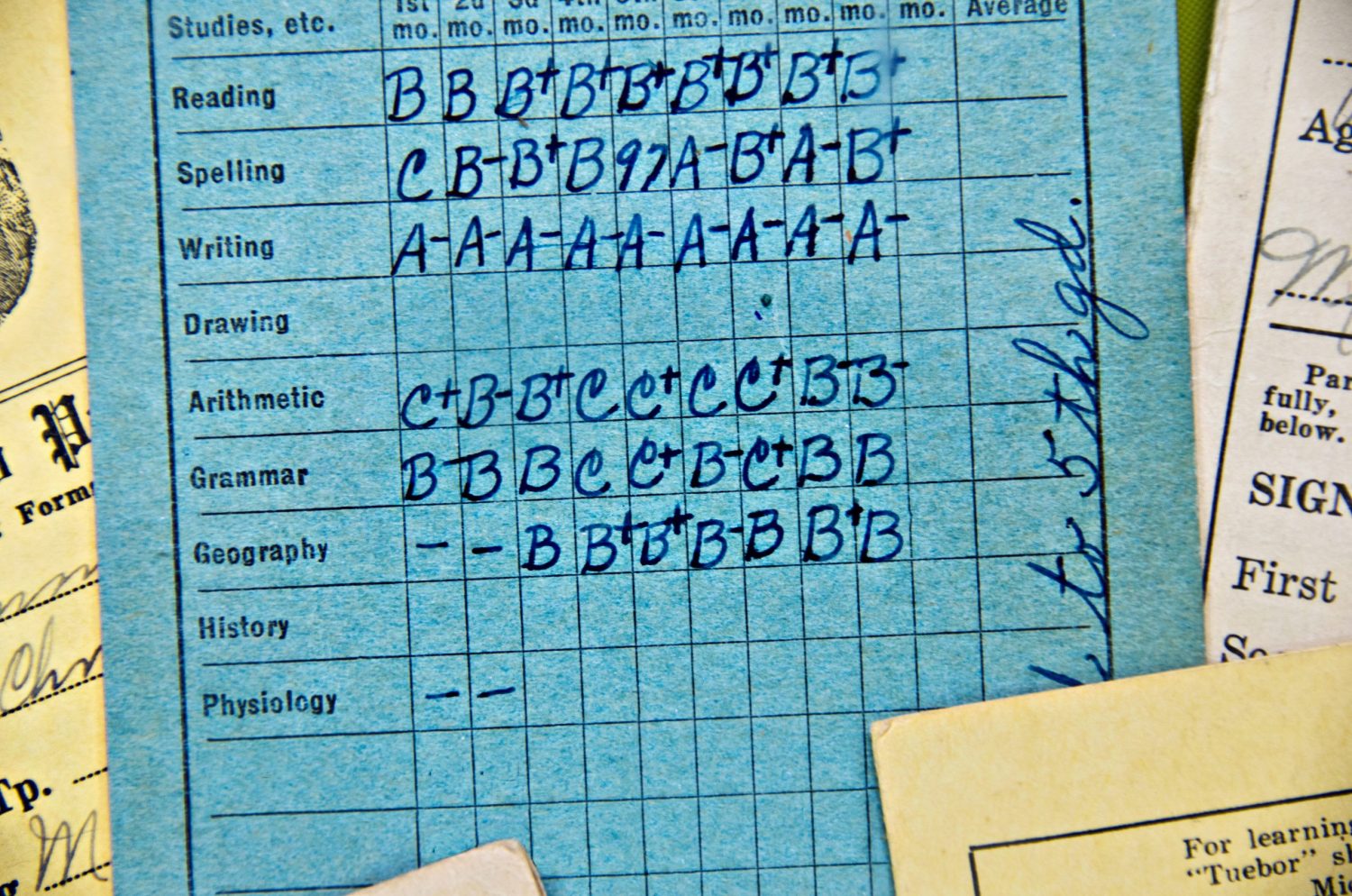Failing a semester in high school means that the grades for that semester will be permanently placed on your transcript and will affect your overall average. This can have long-term implications for college applications and future opportunities.
It is important to address the reasons for failing and take appropriate steps to improve academically, such as seeking additional support, considering a change in major or transferring to a community college. Retaking the failed semester may be necessary, although there are some exceptions depending on the class and the school’s policies.
Overall, failing a semester requires careful evaluation and proactive measures to ensure future success.
The Impact On Graduation And Progression
Failing a semester in high school can have an impact on graduation and progression. It may require retaking the failed classes or seeking alternatives such as switching majors, additional funding assistance, or counseling. It’s important to take action and develop a plan to stay on track towards graduation.
Potential Delay In Graduation:
- Failing a semester in high school can potentially lead to a delay in graduation.
- Students may need to retake failed classes or make up for the missed credits in order to meet the graduation requirements.
- This delay can affect the overall timeline of a student’s academic journey.
Requirement To Retake Failed Classes:
- When a student fails a semester, they may be required to retake the failed classes in order to earn the necessary credits.
- Retaking the classes provides an opportunity to improve understanding and performance in those subjects.
- It is important to note that retaking classes may result in a heavier academic workload in future semesters.
Impact On Academic Transcript:
- Failing a semester can have a significant impact on a student’s academic transcript.
- The failed grades will be recorded on the transcript, which can affect overall GPA and future academic opportunities.
- College admissions officers and potential employers often consider academic transcripts, so it is important to address and overcome failed grades.
Effects On College Applications And Future Opportunities
Failing a semester in high school can have negative effects on college applications and future opportunities. It can lower your GPA, potentially limit scholarship opportunities, and may require you to retake classes or seek additional academic support. It’s important to address the reasons for the failure and take steps to improve and recover academically.
Impact On College Admissions:
- Failing a semester in high school can have various effects on college admissions. Here are the potential consequences:
- Decreased GPA: Failing a semester will lower your GPA, which is one of the key factors that colleges consider during the admission process.
- Academic standing: Colleges review your academic record to determine your ability to handle college-level coursework. Failing a semester may raise concerns about your readiness for higher education.
- Limited choices: Some colleges have specific GPA requirements or minimum grade thresholds for admission. Failing a semester could limit your options and make it more challenging to gain acceptance to certain institutions.
- Negative perception: Admissions officers may question your commitment, work ethic, and potential based on the failure. It is crucial to effectively address this setback in your application.
- Need for explanation and justification:
Need For Explanation And Justification:
- If you fail a semester in high school, it is essential to provide an explanation and justification to colleges. Here’s why:
- Personal statement: Most college applications require a personal statement where you can discuss challenges you’ve faced and how you’ve grown from them. Failing a semester could be a significant point of reflection in your personal statement.
- Demonstrating growth: Admissions officers value resilience and the ability to learn from setbacks. Explaining the reasons for your failure and showcasing personal and academic growth can help mitigate the impact on your application.
- Individual circumstances: If there were extenuating circumstances that contributed to your failure, such as health issues or family emergencies, colleges may take that into consideration.
- Supporting documentation: Colleges may ask for supporting documentation to verify your circumstances. It is crucial to gather any relevant documents like medical records or letters explaining the situation.
Impact On Scholarship Opportunities:
- Failing a semester in high school can also affect scholarship opportunities. Here’s how:
- Merit-based scholarships: Many scholarships require maintaining a certain GPA. Failing a semester can make you ineligible for these scholarships or reduce your chances of receiving them.
- Need-based scholarships: Need-based scholarships often consider your overall academic performance. Failing a semester may affect your eligibility or reduce the amount of financial aid you can receive.
- Competitive scholarships: Failing a semester may harm your chances of receiving highly competitive scholarships that have rigorous academic requirements.
- Alternative options: If you do not qualify for certain scholarships due to failing a semester, you may need to explore other financial aid options like grants, work-study programs, or student loans.
Remember, while failing a semester can have consequences, it does not mean the end of your college ambitions. With a proactive approach in addressing the failure, taking steps to improve academically, and showcasing your determination, you can still create opportunities for a successful college application and future endeavors.
Emotional And Psychological Consequences
Failing a semester in high school can have emotional and psychological consequences. It can lead to feelings of disappointment, frustration, and lowered self-esteem. Students may also experience increased stress and anxiety about their academic future.
Feelings Of Failure And Disappointment:
- Failing a semester in high school can lead to intense feelings of failure and disappointment.
- Students may experience a sense of shame and find it difficult to cope with the fact that their peers are moving ahead academically while they are left behind.
- The fear of disappointing their parents and teachers can add to these negative emotions, further impacting their self-esteem and motivation.
Pressure And Stress From Peers And Family:
- Students who fail a semester may face increased pressure and stress from their peers and family.
- Peers can be judgmental and unsupportive, creating an environment of criticism and ridicule.
- Pressure from family members, who may have high expectations and aspirations for their academic success, can be particularly overwhelming.
- The constant comparison to siblings or peers who excel academically can lead to further stress and anxiety.
Importance Of Seeking Support And Counseling:
- It is vital for students who have failed a semester to seek support and counseling to navigate through the emotional and psychological consequences.
- Speaking to a trusted adult, such as a guidance counselor or teacher, can provide valuable guidance and support.
- Counseling sessions can help students process their feelings of failure, develop coping mechanisms, and set realistic goals moving forward.
- Seeking support from friends and family who offer understanding and encouragement can also provide a positive impact on their emotional well-being.
- Taking proactive steps towards self-care, such as engaging in hobbies or activities that bring joy, can help students regain a sense of confidence and motivation.
Remember, failing a semester does not define a student’s worth or future prospects. With proper support and a growth mindset, students can bounce back and find success in their academic journey.

Credit: collegefinance.com
Frequently Asked Questions For What Happens If You Fail A Semester In High School
What To Do If You Fail A Semester?
If you fail a semester in high school, there are a few steps you can take: 1. Reconsider your major if you’re struggling with the academic content. 2. Seek additional funding assistance if needed. 3. Seek counseling for support and guidance.
4. Suspend your studies if necessary. 5. Transfer to a community college as an alternative option. Note: Failing a semester can have consequences on your transcript and future academic progress.
What Happens If You Fail One Semester Of A Class?
If you fail one semester of a class, you typically only need to retake that specific semester for credit. However, there may be exceptions where you don’t need to retake the class or the school assigns you an easier course for credit.
What Happens If You Fail One Term In High School?
If you fail one term in high school, you may have to retake the class or seek other options such as switching majors or seeking counseling.
What Happens If You Fail A Semester Of Math In High School?
Failing a semester of math in high school may require you to repeat the semester or the entire year for the course. It depends on the school’s policy.
Can I Retake Just The Semester That I Failed?
Yes, generally, you only have to retake the semester that you failed. This is because that is the credit that you need. However, there are some exceptions: if you don’t need the class, you might not have to retake it at all or the school might place you in an easier course for the credit.
Conclusion
Failing a semester in high school can be a challenging experience, but it does not define your entire academic journey. The first step in overcoming this setback is to reconsider your major. If you are struggling with the content of your program, switching majors can provide a fresh start and a higher chance of success.
Seeking additional funding assistance and counseling can also be beneficial in helping you navigate through this difficult period. In some cases, suspending your studies or transferring to a community college may be options worth considering. While failing a semester may feel discouraging, it is important to remember that it does not determine your future success.
Taking this as an opportunity to learn and grow can set you on a path towards stronger academic performance. By staying determined and seeking the necessary support, you can bounce back and achieve your goals.


